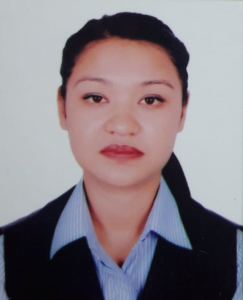



COVID-2019 has affected personal, economic, and professional lives of teachers in a number of ways. It has created a ‘superdifficult circumstance’ which can be defined as a situation where teachers, students, parents and communities face a multitude of problems which they may not able to address. In the context of COVID-2019, teachers are facing physical, mental, economic, and other socio-cultural challenges which directly affect their personal and professional life. While some teachers have lost their jobs, others have to teach using online tools which they had never used before. The purpose of this blogpost is to analyse teachers’ experiences during the COVID-2019 pandemic and discuss their implications in the post-COVID context. The narratives are drawn from the members of Teachers for Teacher (TfT) group, a small group of teachers for professional development and research in English language education. As a network of teachers, the members of TfT meet occasionally for informal discussions on issues related to teaching, research, innovations and professional development. The narratives in this blogpost were collected in writing and have been organised under different themes.
Learning opportunities for professional development
The pandemic has completely shut down the economy, transportation and social activities. The schools were closed and the planned exams were postponed. Schools and teachers had no clue about what they should be doing next. The situation was getting worse as the lockdown period was extended. We had asked the teachers what they have been doing during the lockdown and discussed how they coped with the pandemic situation. As seen in Raj’s (pseudonym) story, teachers have used the lockdown period as a learning opportunity for professional development.
In the beginning of lockdown, I was not worried about anything because I thought it was like the end-of-year vacation. I heard about online classes and distance learning as I was taking some Zoom sessions for my professional development. As the lockdown was extended, I tried to keep myself busy in taking some online courses. In the first month of lockdown, I was enjoying my personal life by learning different online learning courses. In the third week of April, the school leadership called me to talk about the possibility of running virtual classes and requested me to lead the initiative. It was a challenging job for me to coordinate and train other teachers for online classes. I started studying different means of virtual learning/teaching system management and talked to different experts, principals and coordinators of other schools and found a few learning management systems (LMS).
Raj does not realise that there was a complete lockdown. He kept himself busy in exploring ICT tools and development learning management system. He worked hard to identify the most appropriate tool for his school. As mentioned below, Raj explores multiple ICT tools by considering the financial situation of his institution. Finally, he is able to create an LMS for his school and becoming a ‘certified Google trainer’.
I kept myself busy in learning and applying ICT tools and applications. I was completely engaged. For two weeks, I could not realise that there was a complete lockdown. I worked 18 hours a day to enable myself to handle learning management systems. I studied Zoom, Google Classroom, Microsoft and the other tools for virtual teaching. I found Zoom, Google Meet and Microsoft Teams for synchronous learning and Google classroom, E-mail, Facebook, Viber and other asynchronous tools for communication. Eventually, I set up a learning management system (LMS) in my school. Zoom was used as asynchronous and Google Classroom as an asynchronous learning management system. But I faced some major challenges such as data storage problem (online/cloud data and offline device storage) in different tools and internet connectivity. Later, I knew that I could use Google for education which allows using Google Meet and additional tools for learning. I applied for G-Suite. As our school did not have much funding resource, I could not use other effective LMSs. For the first time in my life, I learnt about the word domain in technology. After a series of communication with Google representatives, I was able to get a G-Suite for Education for free. Now I have completed educator level ‘I’ and level ‘II’ and in the certification process for educator level ‘I’ and ‘II’ from Google. After that, I can go for a Google certified trainer.
Becoming a teacher educator and implementing innovations
The narratives show that teachers have first learned about ICT tools and trained other teachers. Although they faced challenges, they had time to explore new ideas and use them in their teaching and for training their colleagues. Rajan faced challenges to training teachers to deliver classes by using G-Suite. He organised a four-day workshop on Google form and other tools such as Google Meet and PowerPoints. He tells his experiences as follows:
Teaching textbook was a common and easy thing for all the teachers but in this flipped pedagogy teacher should prepare the materials based on the curriculum. Narrowing down the broad curricular concepts into teachable fragments was a great challenge for the teachers. On the other hand, implementing those materials in virtual learning is another challenge for the teachers. In this situation, the training was not effective as it was expected to be but I was able to make teachers familiar with Google Classroom. Though the planning of the lesson was not my part, I was compelled to go through it as the traditional lesson planning is not completely okay with distance learning. Though I was aware of the challenges of engaging students in virtual learning platforms I couldn’t design all the activities based on curriculum. Instead I requested teachers to make their classes more interactive by asking questions.
Teachers as a change agent and a community mobilizer
Teachers can play an agentive role during the pandemic situation. In the narratives we have collected, Reg (pseudonym), who has been teaching in a public school of Kathmandu and went to his village in Gandaki province during the lockdown, has played a critical role to establish learning centres to teach students by maintaining a physical distance. He tells how classes were run at those centres as follows:
I went to the learning centre near my house. Most of the learners were happy with new textbooks. The teacher was supporting every student in reading and writing. All learners were busy in reading and writing. I wanted to demonstrate different learning strategies so I requested the teacher to try out something new. I asked students to do creative tasks like drawing, small field visits, project works. […] I told them to maintain the physical distance and walk to the Shiva Mandir close to the learning centre. Most of the learners were passionate to know about the temple. I asked them to observe the temple closely and encouraged them to ask some questions about the temple and other activities around it. While some students were observing the temple, others were reading the notice board and the list of the donors pasted to the door. Others were counting the bells in front of the temple in a loud voice. They asked questions regarding the foundation, management committee, worshiping practices, and religious significance of the temple to the old grandfather, who was in the temple. After an hour I gathered them in the meadow and asked them what they observed. […] I was surprised by their confidence and happy mood while sharing their observation. Even small kids were sharing interesting information about Shiva Mandir, which I had not known before as the permanent inhabitant of the village. One of the learners shared the story of Shiva and Parwati as told by the old grandfather. After that, I told them to go to the learning centre. Most of them wanted to go to the next temple located in the community. I made a promise to teach them the next day and return to the home listening interesting talking on the way.
By engaging learners in project-based activities, Reg was helping them to develop research skills. The learners were motivated to learn about the temple in their own community. For them, it was an opportunity to interact with their friends, by maintaining social distance, observe the details of the temple and organise information to share with their friends and the teacher. By doing, Reg was helping the students to learn reading, writing and research skills beyond the textbook. Reg’s efforts help students connect their learning with real life experiences. The anecdote given below implies that students learn better when the learning process is linked with their personal life and community.
On the second day, despite a heavy rain, I went to the learning center. Due to the heavy rain, it was difficult to go out so I asked some questions related to how rainfall occurs. Some answers were funny and interesting. One of the learners answered that cloud brings a huge pot to carry water from a stream/pond and pours it from the sky. Some students from the upper level explained the process of rainfall correctly. They asked a number of questions such as why the cloud blocks the rays of the sun, how the hailstone falls, and what the reason behind hot and cold weather is. I was surprised with their questioning techniques. I was unable to answer some of their questions. I answered using taking the help from the internet but they continued to raise more questions. I promised to answer their questions the next day. I was impressed by their logic, curiosity, and passion for asking the questions.
Reg’s efforts imply that, in a superdifficult situation like COVID-2019, multiliteracy projects can help students learn effectively. Such projects do not necessarily follow the textbook contents. As discussed above, by engaging students in a fieldwork, they developed observation, reporting, communicative, speaking, and collaborative skills. Such activities promote students’ participation, motivation, and self-learning. By participating in such activities, learners gather historical information about different sites in their communities and develop questioning and research skills. As Reg describes “such activities have taught me a memorable lesson in my teaching profession that teaching and learning are not limited to textbooks and classroom; students can learn from their communities.”
Addressing the digital divide
Many schools do not have ICT infrastructures to run online classes. The teachers working in low-resource schools are not able to contact their students. The story of Rita (pseudonym) implies some key insights to address the digital divide and help students learn when the schools are closed. Rita begins her experience as follows:
My school has also tried to create virtual learning environment during Covid-19. For that, we contacted students through phone calls to confirm that whether they can learn through internet, T.V., or Radio. There were around 500 students in my school before the lockdown began. Among 500 students, 200 students came into our contact but the rest of them are still out of contact. The students were divided into 3 different groups based on their access to digital tools such as internet, T.V and Radio. Among 200 students only 82 of them were able to participate in online classes. We tried to begin the classes but we found that very few students could join the class. More than a half of the students were left behind. I thought this situation could create negativity in their mind […]. So, we could not run classes. Now, students read the textbooks at home and ask questions to their subject teachers via phone.
Rita further tells that due to lack of ICT devices with parents, it is not possible to implement online mode of teaching. However, as mentioned above, mobile phones could be a helpful tool to help students learn. Rita suggests that:
I would like to suggest that we could ask students to do different things beyond textbooks. We can ask them to do activities they are interested in. They can use their local knowledge and build up life skills by doing the things around them. Rather than asking them to do textbook-based activities for the purpose of assessment, it is important to give activities that foster their creative and critical thinking skills. They may enjoy documenting what they learned at home and in the community. They can describe what they have seen during COVID-19.
Rita argues that digital divide is a serious issue in education. While the schools are exploring alternative approaches to learning, it is important to assess whether such approaches (mainly online teaching) could exacerbate unequal participation in learning activities and access to knowledge.
Conclusion
The stories of three teachers imply that teachers could play a critical role in addressing students’ learning challenges created by the superdifficult circumstance of COVID-19. As discussed in this blogpost, teachers have engaged themselves in a number of professional development activities to strengthen their ICT and creative pedagogical skills. This situation indicates that teachers have utilised this difficult time to upgrade their professional skills which they could use in post-COVID classes.
Authors:
Dr Prem Phyak, an MEd in English from Tribhuvan University, MA in TESOL from University College London, and PhD in English from University of Hawaii, USA, is an Associate Professor of English at Tribhuvan University, Nepal.
Mr Bhim Sapkota, an MPhil student at Nepal Open University, is a Lecturer of English at Kathmandu Shiksha Campus and English teacher at Shree Bishnudevi Secondary School, Chandragiri, Kathmandu.
Mr Ramji Acharya, an MEd graduate, is a Programme Coordinator as well as English teacher at Regent Residential School, Lalitpur.
Ms Dil Kumari Shrestha, an MEd in English and MA in Political Science graduate, is a Lower Secondary English teacher.
Cite as: Phyak, P., Sapkota, B., Acharya, R., & Shrestha, D. K. (2020, July). Teacher agency in a superdifficult circumstance: Lessons from a low-resource context during COVID-19. https://eltchoutari.com/2020/07/teacher-agency-in-a-superdifficult-circumstance-lessons-from-a-low-resource-context-during-covid-19/
Wonderful exploration!
Really wonderful exploration. I came to know that existing situation due to covid and strategies for applying alternative way to resume educational events.
I thoroughly enjoyed the teachers stories. How good to know that teachers can work on upgrading their professional development even in such difficult times!
Enjoyed reading
While reading your real life story, I found my own image on your face. It’s really inspirational and encouraging story.
Nice !! Real Experiences Included…